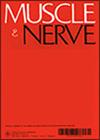Access for ALL in ALS: A large-scale, inclusive, collaborative consortium to unlock the molecular and genetic mechanisms of amyotrophic lateral sclerosis.
IF 2.8
3区 医学
Q2 CLINICAL NEUROLOGY
引用次数: 0
Abstract
Recent progress in therapeutics for amyotrophic lateral sclerosis (ALS) has spurred development and imbued the field of ALS with hope for more breakthroughs, yet substantial scientific gaps persist. This unmet need remains a stark reminder that innovative paradigms are needed to invigorate ALS research. To move toward more informative, targeted, and personalized drug development, the National Institutes of Health (NIH) established a national ALS clinical research consortium called Access for ALL in ALS (ALL ALS). This new consortium is a multi-institutional effort that aims to organize the ALS clinical research landscape in the United States. ALL ALS is operating in partnership with several stakeholders to operationalize the recommendations of the Accelerating Access to Critical Therapies for ALS Act (ACT for ALS) Public Private Partnership. ALL ALS will provide a large-scale, centralized, and readily accessible infrastructure for the collection and storage of a wide range of data from people living with ALS (symptomatic cohort) or who may be at risk of developing ALS (asymptomatic ALS gene carriers). Importantly, ALL ALS is designed to encourage community engagement, equity, and inclusion. The consortium is prioritizing the enrollment of geographically, ethnoculturally, and socioeconomically diverse participants. Collected data include longitudinal clinical data and biofluids, genomic, and digital biomarkers that will be harmonized and linked to the central Accelerating Medicines Partnership for ALS (AMP ALS) portal for sharing with the research community. The aim of ALL ALS is to deliver a comprehensive, inclusive, open-science dataset to help researchers answer important scientific questions of clinical relevance in ALS.肌萎缩性脊髓侧索硬化症(ALS)的全科治疗:一个大规模、包容性的合作联盟,旨在揭示肌萎缩性脊髓侧索硬化症的分子和遗传机制。
肌萎缩性脊髓侧索硬化症(ALS)治疗方面的最新进展推动了该领域的发展,并为该领域带来了取得更多突破的希望,但科学上的巨大差距依然存在。这一尚未满足的需求仍在严峻地提醒我们,需要创新的范式来振兴 ALS 研究。为了实现更多信息、更有针对性和更个性化的药物开发,美国国立卫生研究院(NIH)成立了一个名为 "Access for ALL in ALS (ALL ALS) "的全国 ALS 临床研究联盟。这一新联盟由多个机构组成,旨在组织美国的 ALS 临床研究工作。ALL ALS 正在与多个利益相关方合作,以落实《加速 ALS 关键疗法获取法案》(ACT for ALS)公私合作项目的建议。ALL ALS 将为 ALS 患者(有症状人群)或有可能患 ALS 的人群(无症状 ALS 基因携带者)提供大规模、集中化和随时可用的基础设施,用于收集和存储各种数据。重要的是,ALL ALS 的设计旨在鼓励社区参与、平等和包容。该联盟优先考虑招募在地域、种族文化和社会经济方面具有多样性的参与者。收集的数据包括纵向临床数据以及生物流体、基因组和数字生物标记物,这些数据将被统一并链接到加速 ALS 药物合作组织 (AMP ALS) 的中央门户网站,以便与研究界共享。ALL ALS 的目标是提供一个全面、包容、开放的科学数据集,帮助研究人员回答 ALS 临床相关的重要科学问题。
本文章由计算机程序翻译,如有差异,请以英文原文为准。
求助全文
约1分钟内获得全文
求助全文
来源期刊

Muscle & Nerve
医学-临床神经学
CiteScore
6.40
自引率
5.90%
发文量
287
审稿时长
3-6 weeks
期刊介绍:
Muscle & Nerve is an international and interdisciplinary publication of original contributions, in both health and disease, concerning studies of the muscle, the neuromuscular junction, the peripheral motor, sensory and autonomic neurons, and the central nervous system where the behavior of the peripheral nervous system is clarified. Appearing monthly, Muscle & Nerve publishes clinical studies and clinically relevant research reports in the fields of anatomy, biochemistry, cell biology, electrophysiology and electrodiagnosis, epidemiology, genetics, immunology, pathology, pharmacology, physiology, toxicology, and virology. The Journal welcomes articles and reports on basic clinical electrophysiology and electrodiagnosis. We expedite some papers dealing with timely topics to keep up with the fast-moving pace of science, based on the referees'' recommendation.
 求助内容:
求助内容: 应助结果提醒方式:
应助结果提醒方式:


